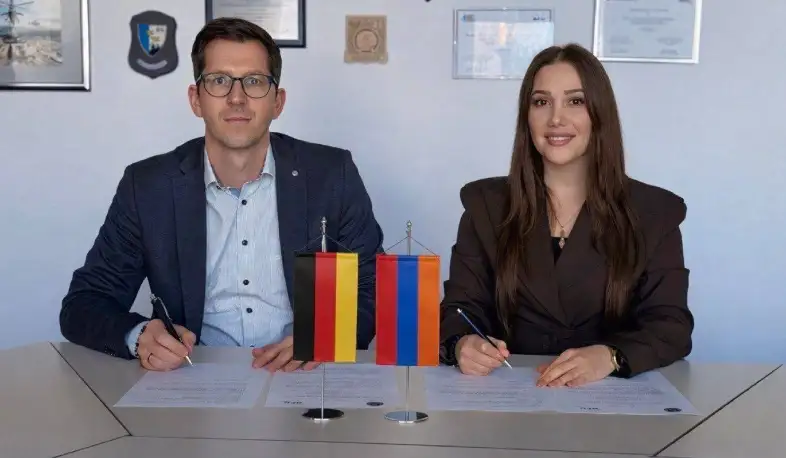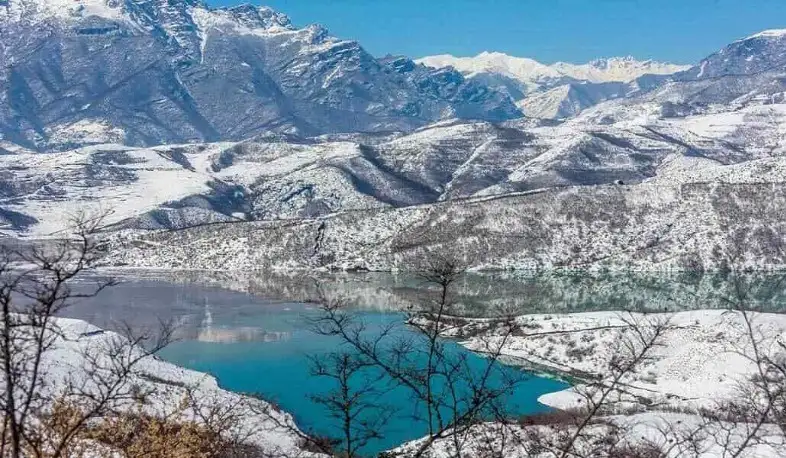In the city of Turkmenbashi, Turkmenistan, President of the Republic Vahagn Khachaturyan participated in the official opening ceremony of the Third Conference of Landlocked Developing Countries.
After the reception of the heads of delegations and the official photo session, the plenary session of the conference began, during which President Vahagn Khachaturyan delivered a speech.
The President’s speech:
“I am very pleased to address you today at this historic and significant moment, when we have gathered in Avaza to participate in the Third UN Conference of Landlocked Developing Countries.
Allow me to express my sincere gratitude to the Government of Turkmenistan for organizing the conference at a high level and for the warm hospitality shown.
We also express our deep gratitude to the UN High Representative, Ms. Rabab Fatima, who is the Secretary of the Third United Nations Conference on Landlocked Developing Countries, and her team, for their leadership in keeping the priorities of landlocked developing countries high on the UN agenda.
Ladies and Gentlemen,
Access to global markets is vital for inclusive and sustainable development. In today’s interconnected world, cross-border flows of goods, services, and people are a powerful driver of shared prosperity. However, landlocked developing countries continue to face serious challenges due to geographical constraints that often hinder their full participation in global trade, economic diversification, and investment attraction, slowing down our collective progress towards the Sustainable Development Goals.
We now have a clear and forward-looking roadmap to address these challenges and transform the lives and economies of landlocked developing countries. The Avaza Platform for Action is a comprehensive document that contains concrete steps, commitments, and results from all stakeholders, particularly those aimed at addressing the socio-economic consequences of emerging threats. The five priority areas of the new Platform for Action build on the Vienna Platform for Action and directly address the most pressing challenges facing landlocked developing countries.
The Avaza Platform for Action can serve as a guide to foster closer cooperation between landlocked developing countries, transit countries, the United Nations, its agencies, as well as international development organizations and financial institutions, helping us to make rapid and significant progress on shared priorities.
However, translating the ambitions of the new Platform for Action into concrete results is a significant challenge, given the lack of funding, especially for transport infrastructure. Landlocked developing countries cannot do this alone. We need enhanced regional cooperation, including among landlocked and transit countries. We need to remove artificial and motivated barriers to the free movement of people, goods, and services. This is not only a practical necessity, but also vital to guarantee economic and social rights, the right to development, and comprehensive regional and global connectivity.
We value substantial support from development partners to increase investment in cross-border infrastructure, thereby making trade faster and more efficient.
We must also ensure that landlocked developing countries are fully involved in the global digital and green transformation processes to avoid their backwardness in the global economy.
It is also necessary to strengthen resilience in the face of climate change and biodiversity loss. Armenia, as the next host and chair of the COP17 Conference on Biodiversity, will spare no effort to advance this critical agenda and ensure that landlocked developing countries are connected and fully benefit from their rich biodiversity resources.
Ladies and Gentlemen,
I represent a country that has been facing the consequences of geographical constraints and a complex geopolitical environment for more than three decades. With closed borders with two neighbors, no direct access to the ocean or sea, and unique challenges in trade, transport, and freight, the Government of Armenia fully recognizes the vital importance of inclusive connectivity, open borders, and reliable roads and transport infrastructure for integration into global markets.
With this understanding, the Government of Armenia has developed the “Crossroads of Peace” initiative, which demonstrates my country’s commitment to regional peace and cooperation while promoting inclusive connectivity at both regional and global levels.
The Crossroads of Peace project has the potential to make our economies more prosperous and resilient. By aligning economic interests with long-awaited peace and stability at the core of the project, it aims to create practical trade agreements based on shared interests in trade, transport, energy, and tourism, turning the vision into reality.
Your Excellencies,
In conclusion, I would like to express once again my deep gratitude to the Government of Turkmenistan and the United Nations for hosting this conference. We look forward to meaningful and productive discussions on building a future where landlockedness is no longer seen as a limitation, but rather a starting point for innovation, resilience, and shared prosperity.
Let me reiterate that Armenia is fully committed to practical multilateral cooperation with all partners to implement the Avaza Action Plan for landlocked developing countries.
Thank you.”




















